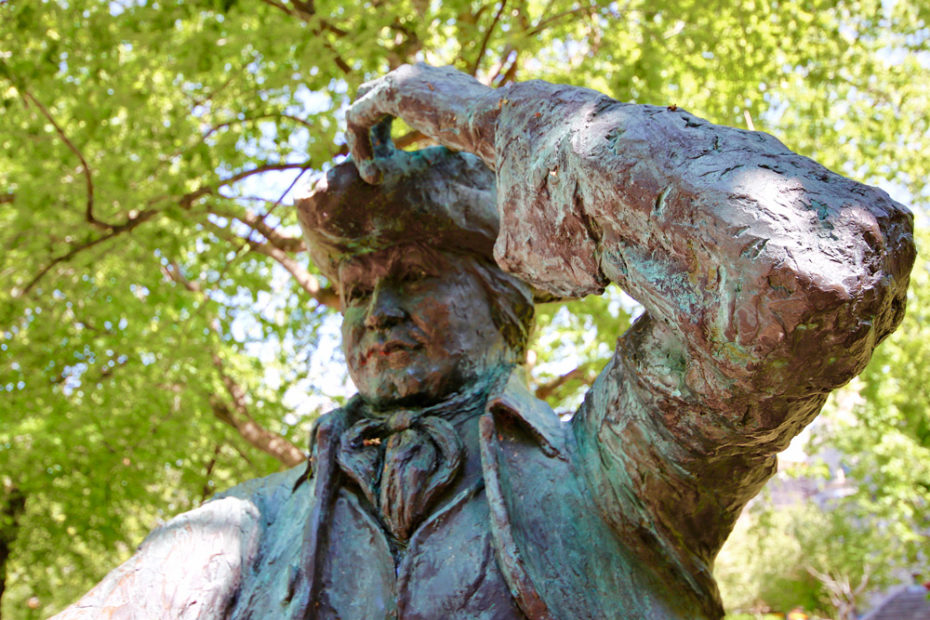
The following is a message sent to the McGill community on April 29 by Principal Suzanne Fortier.
Dear members of the McGill community,
In his 2018 book “Enlightenment Now,” McGill alumnus and Harvard Professor Steven Pinker makes the case for the values of Enlightenment: reason, science, humanism, and progress. As we face one of the worst crises of our times, these ideals seem more relevant than ever.
They anchor the research efforts worldwide to understand the COVID-19 virus and defeat it, and they are the foundation of research initiatives here at McGill, where hundreds of researchers are doubling down on a wide array of research projects aimed at, among others, more rapid testing, designing efficient and portable medical instruments, assessing the potential efficacy of already existing drugs, and designing new ones.
You will appreciate how great it feels for me to know that some of the most important research initiatives in Canada are led by people here at McGill. Last week, the federal government announced a major country-wide serology study to gain information on the scope and scale of immunity across Canada – information that is vital to manage the pandemic and safely get Canadians back to work. Dr. Timothy Evans, Associate Dean and Director of McGill’s School of Population and Global Health, will be the Executive Director of the COVID-19 Task Force and Dr. Catherine Hankins will co-chair the Leadership group with Dr. David Naylor of the University of Toronto.
A few weeks earlier, Dr. Vincent Mooser was asked to lead the Quebec COVID-19 Biobank project launched by the Fonds de recherche du Québec and Génome Québec, a province-wide initiative to enable the collection, storage, and sharing of samples and data related to the COVID-19 crisis.
We rarely use military language in research, but here we literally have an army of top experts engaged in fighting the war against COVID-19 with the McGill Interdisciplinary Initiative in Infection and Immunity (MI4), a group that brings together more than 250 researchers who are focusing their expertise and efforts in looking at every aspect of COVID-19, and acquiring the essential knowledge to defeat it.
As we continue to tackle this pandemic, our best arm is knowledge: acquiring knowledge and sharing it with colleagues across the world. And as we search “for the light at the end of the tunnel,” let’s find a ray of hope in the words of Professor Pinker: “There is no limit to the betterments we can attain if we continue to apply knowledge to enhance human flourishing.”
Sincerely,
Suzanne Fortier
Principal and Vice-Chancellor
_________________________________________
Chers membres de la communauté mcgilloise,
Dans son livre Enlightenment Now (Le triomphe des Lumières, en français), paru en 2018, Steven Pinker, diplômé de McGill et professeur à l’Université Harvard, souligne l’importance d’idéaux qui semblent plus d’actualité que jamais, au cœur de l’une des pires crises de notre temps : la raison, la science, l’humanisme et le progrès.
Partout dans le monde, ces idéaux guident les chercheurs dans leur compréhension du nouveau coronavirus et dans leur quête d’une arme contre lui. Ils sont également à la base de travaux menés à McGill, où des centaines de chercheurs redoublent d’efforts pour mener à bien une foule de projets visant, notamment, à accélérer le dépistage, à concevoir des appareils médicaux pratiques, ainsi qu’à évaluer l’efficacité potentielle de médicaments existants et à créer de nouveaux produits.
Certains des plus importants projets en cours au Canada sont pilotés par des chercheurs de McGill; vous pouvez sûrement imaginer la fierté que cela me procure. La semaine dernière, le gouvernement fédéral a annoncé le lancement d’une étude sérologique à l’échelle nationale, dont l’objectif sera la collecte de données sur le degré d’immunité au Canada. Cette information est essentielle à la bonne gestion de la situation et au retour au travail des Canadiens en toute sécurité. Le Dr Timothy Evans, vice-doyen et directeur de l’École de santé des populations et de santé mondiale à McGill, dirigera le Groupe de travail sur l’immunité face à la COVID-19 et la Dre Catherine Hankins coprésidera l’équipe de direction en compagnie du Dr David Naylor, de l’Université de Toronto.
Il y a quelques semaines, on a demandé au Dr Vincent Mooser de diriger la Biobanque québécoise de la COVID-19 mise sur pied par le Fonds de recherche du Québec et Génome Québec, projet qui a pour but la collecte, la conservation et le partage des échantillons et des données sur la COVID-19 à l’échelle de la province.
La terminologie militaire n’est pas monnaie courante dans le monde de la recherche. Pourtant, nous pouvons vraiment dire qu’une armée d’experts a déclaré la guerre à la COVID-19, épaulée par l’Initiative interdisciplinaire en infection et immunité de McGill (MI4) et ses 250 brillants chercheurs, engagés dans une analyse minutieuse de la COVID-19 en quête de données essentielles à la victoire.
Dans notre lutte contre la pandémie, la connaissance constitue notre meilleure arme. Nous devons donc enrichir cette connaissance et en faire profiter nos collègues du monde entier. Et pendant que nous cherchons la lumière au bout du tunnel, laissons les paroles du Pr Pinker nous inspirer : « Il n’y a pas de limite à l’amélioration, si on continue de mettre la connaissance au service de l’épanouissement de l’humanité. »
Sincères salutations,
Suzanne Fortier
Principale et vice-chancelière
